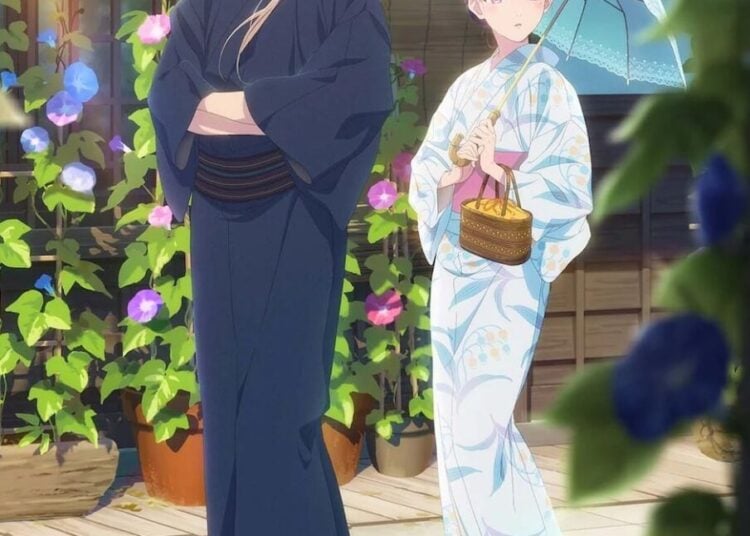“Akemashite omedetou” from all of us in Japan, where convertibles are known as open cars.
Before starting J-List in 1996, I taught English as a Second Language to Japanese students, usually children or high school kids. I had quite an extensive collection of ESL textbooks, vocabulary cards, and various games I would play in class. One such game was “English baseball” in which teams of students would get “hits” if they answered questions using English. Another is the popular Japanese game “fruits basket” in which you put, say, ten chairs in a circle and put one child in each chair, with one more standing in the center. This child must ask a question like “Do you like bananas?” and all kids who like bananas must change seats as quickly as they can. The one left in the center is “it” and must ask the next question to the group. I recently found another great tool for learning English, which I discovered with my kids: Mad Libs, the classic zany word game. My kids love to make up Mad Libs, and it makes them apply their language and vocabulary skills in ways that are amazingly effective. They’re kids, so they have a tendency to want to choose words like “stinky underpants” but it’s still a lot of laughs, and it helps their English.
If you’re going to travel to Japan, you’d better bring your suitscase, and make sure you wear a clean shirts and a nice suits. My favorite sports is soccer, and my favorite anime show (and children’s game) is Fruits Basket. Sound odd? For some inexplicable reason of Japanese phonetics, some English words are imported into Japanese in their plural forms. The word for a suit in Japanese is “suits,” even though you may only be talking about one suit, and a can of fruit juice is “fruits juice.” Japanese don’t mind these words, although the misuse of English grammar tends to give English natives the heebie jeebies at first. Then you get used to the strange words, and the next thing you know, you’re accidentally using them in English while talking to your mother on the phone — how embarrassing. Sometimes the words are used in their plural forms to make them easier for Japanese to pronounce or write, and other times to keep two words from sounding the same in Japanese. Because “fruit” and “flute” would have the exact same pronunciation when written in katakana, the writing system used for expressing foreign loan words, the musical instrument became “furu-to” and the edible stuff became “furu-tsu.” Other Japaneseified English words include peanuts butter, nutsmeg, and Kellogg’s newest addition to the Japanese cereal market, Fruits Loops.
Driving in Japan can be different from what you might be used to. The Japanese drive on the right side of the road, like the British. Most drivers turn off their car’s headlights at intersections (leaving the parking lights on), as a courtesy to drivers who might be blinded by their lights on the other side of the intersection. While honking a horn at another driver can cause road rage in the U.S., here a short “beep” is the universal way of saying thanks and good-bye as you pull away. In Tokyo, where drivers drive with consideration for others (unlike our prefecture, where drivers are very rude), a two-second flashing of the hazard lights is the correct way to say “thank you” when another car lets you in in front of him. Gaijin are always confused by the Japanese use of the word blue (aoi) to refer to green traffic lights — they look green to us, but for some mysterious reason, they Japanese use the word blue to describe them. Finally, in Japan, there’s a three second delay between the time when one traffic light turns red and the next turns green. By unwritten rule, Japanese drivers universally make use of this time to speed their car through the intersection, despite the red light, since they know they’ve got several seconds before the other cars will start moving.
For the new update, we’ve got some excellent products from Japan for you, including fresh stock of dozens of our popular anime, toy, wacky, DVD, Japanese snack, hentai and other products for you. We still have 80+ fantastic 2004 calendars, and prices have been knocked down yet again to help you help us reduce our inventory. Please browse the over 2000 excellent Japanese products we have available for you!
At J-List, we sell just about everything from cool Japanese items for your kitchen to rare anime toys to wacky T-shirts you don’t know you need until you see them. We feel we have a mission to bring all forms of contemporary Japanese pop culture to our customers all over the world, and we love doing what we do. One item we’ve wanted to sell for many years are the squeaking shoes that Japanese parents buy for their children. Children love having shoes that squeak as they walk, and parents will enjoy knowing exactly where their child is at all time, from the sound of the squeaking. When our own children were small, they wore these shoes when we took trips to the U.S., and we got many comments about what a great idea these shoes were. So we’re happy to be able to bring them to you!















